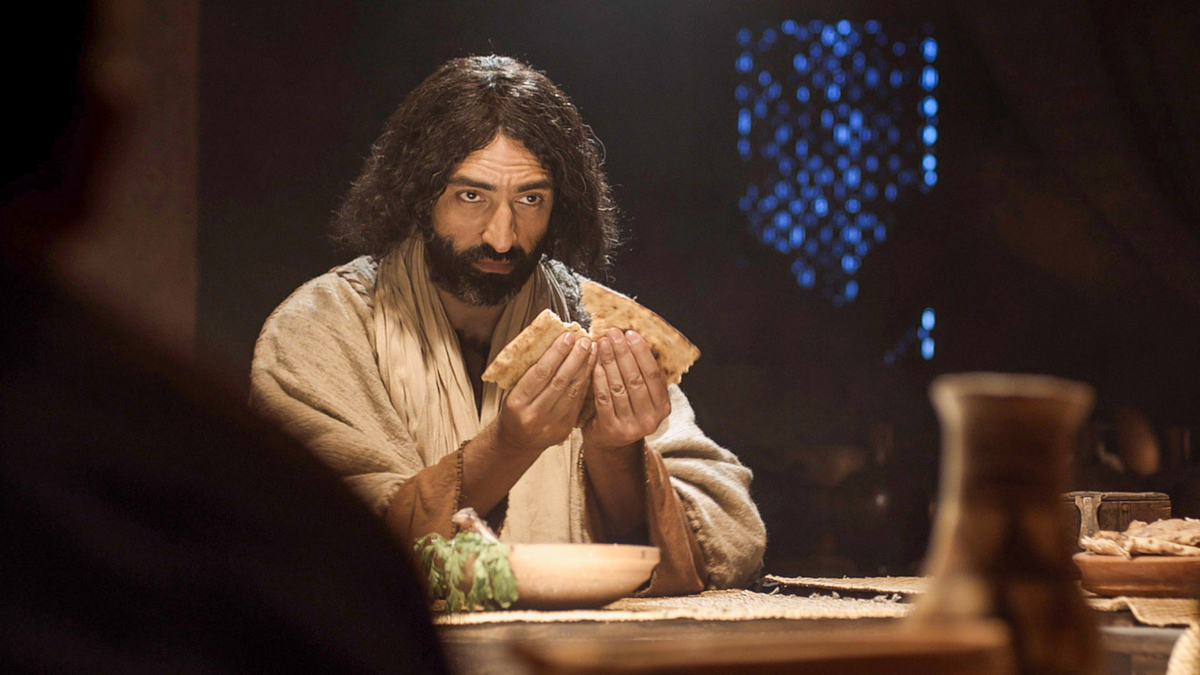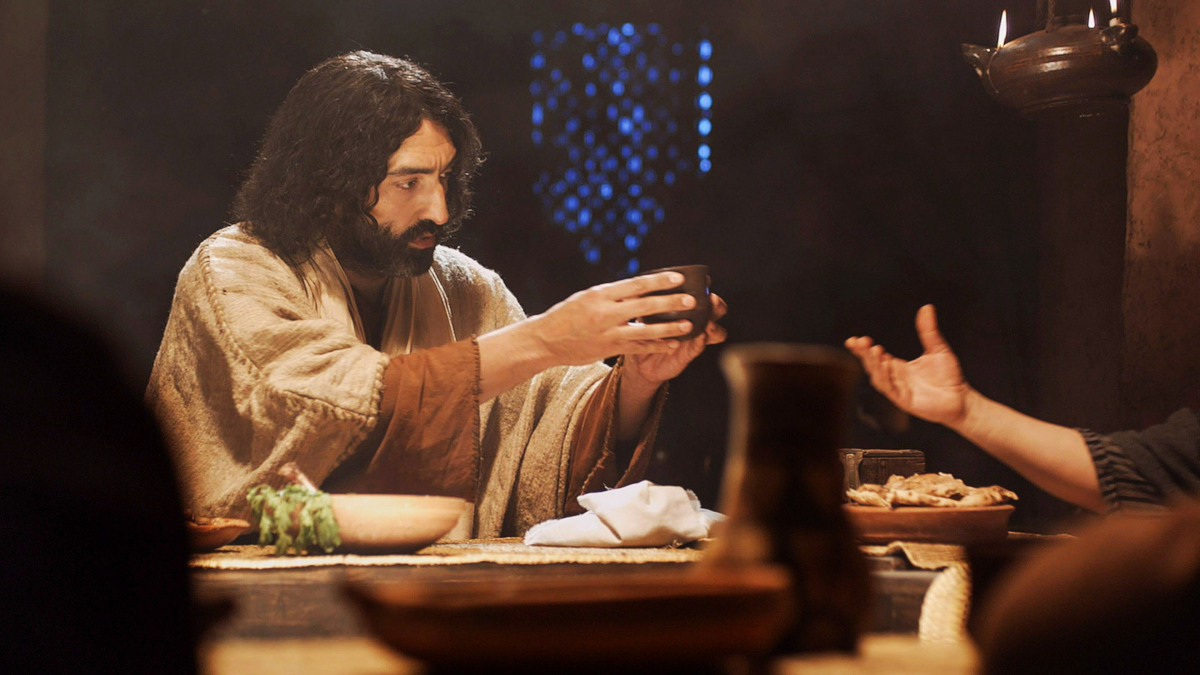When I was a young boy I was part of a church corps that took communion to the shut-ins and hospitalized. We visited those who were unable to come to church but still desired to pray and partake in communion. I must have been ten or eleven years of age when we went to one hospital room that housed an elderly gentleman who was very weak. He was asleep so we tried to wake him. We couldn't. We shook him, we spoke to him, we tapped him on the shoulder, but we couldn't stir him.
We hated to leave without performing our duty, but we didn't know what to do.
One of the young guys with me observed that even though the man was asleep his mouth was open. Why not? We said. So we prayed over the cracker and stuck a piece on his tongue. Then we prayed over the grape juice and poured it down his mouth.
He never woke up.
Neither do many today. For some communion is a sleepy hour in which wafers are eaten, and juice is drunk, and the soul never stirs. It wasn't intended to be as such.
It was intended to be an I-can't-believe-it's-me-pinch-me-I'm-dreaming invitation to sit at God's table and be served by the King himself.

When you read Matthew's account of the Last Supper, one incredible truth surfaces. Jesus is the person behind it all. It was Jesus who selected the place, designated the time, and set the meal in order. "The chosen time is near. I will have the Passover with my followers at your house."1
And at the Supper, Jesus is not the guest but the host. "And [Jesus] gave to the disciples." The subject of the verbs is the message of the event: "he took... he blessed... he broke... he gave..."
And, at the Supper, Jesus is not the one served but the servant. It is Jesus who during the supper put on the garb of a servant and washed the disciples' feet.2

Jesus is the most active one at the table. Jesus is not portrayed as the one who reclines and receives but as the one who stands and gives.
He still does. The Lord's Supper is a gift to you. The Lord's Supper is a sacrament,3 not a sacrifice.4
Often, we think of the Supper as a performance, a time when we are on stage and God is the audience. A ceremony in which we do the work, and he does the watching. That's not how it was intended. If it was, Jesus would have taken his seat at the table and relaxed.5
That's not what he did. He, instead, fulfilled his role as a rabbi by guiding his disciples through the Passover. He fulfilled his role as a servant by washing their feet. And he fulfilled his role as a Savior by granting them forgiveness of sins.
He was in charge. He was on center stage. He was the person behind and in the moment.
And he still is.
It is the Lord's table you sit at. It is the Lord's Supper you eat. Just as Jesus prayed for disciples, Jesus begs God for us.6 When you are called to the table, it might be an emissary who gives the letter, but it is Jesus who wrote it.

It is a Holy invitation. A sacred sacrament begging you to leave the chores of life and enter his splendor.
He meets you at the table.
And when bread is broken, Christ breaks it. When the wine is poured, Christ pours it. And when your burdens are lifted, it is because the King in the apron has drawn near.
Think about that the next time you go to the table.
One last thought.
3 A sacrament is a gift from the Lord to his people.
4 A sacrifice is a gift of the people to the Lord.
5 There are sacrificial moments during the Supper. We offer up prayers, confessions, and thanksgivings as sacrifice. But they are sacrifices of thanksgiving as a salvation received, not sacrifices of service for a salvation desired. We don't say, "Look what I have done." We instead, in awe, watch God and worship what he has done. Both Luther and Calvin had strong convictions regarding the proper view of the Lord's Supper. "Out of the sacrament and testament of God, which ought to be a good guest received, they (the religious leaders) have made up for themselves A good deed performed." (Martin Luther, Luther's Works American Edition, 36:49) "He (Jesus) bids the disciples to take: He himself, therefore is the only one who offers. When the priests pretend that they offer Christ in the Supper, they are starting from quite another source. What a wonderful case of topsy-turvy that a mortal man to deserve the body of Christ should snatch himself to the role of offering it." (John Calvin, A Harmony of the Gospels, 1:133.)
Special thanks for the use of images related to Jesus' ministry from The Lumo Project and Free Bible Images.
Special thanks to Max Lucado and MaxLucado.com for special use of this portion of his online booklet, The Passion, The Pain, and The Promise. Used by permission. All rights reserved.












Comments
Have thoughts on this article? Leave a comment